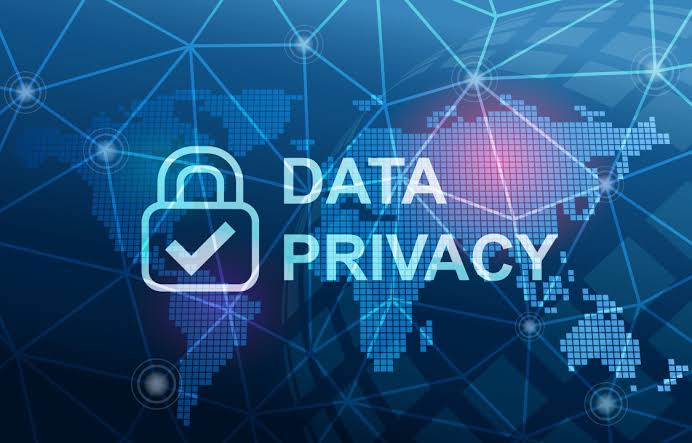
Data privacy regulations (GDPR 2.0, India’s DPDP Act, etc.)
Data privacy regulations such as GDPR 2.0 and India’s DPDP Act are shaping a safer digital ecosystem. They give individuals stronger control over their personal information while holding businesses accountable for ethical data practices. Compliance requires advanced security tools, transparent policies, and cultural shifts in organizations.
✨ Raghav Jain

Introduction
In the digital age, our personal data is constantly being collected—whether it’s through online shopping, social media, mobile apps, or even smart devices. But with convenience comes risk. Data breaches, identity theft, targeted advertising, and surveillance have made data privacy one of the most pressing issues worldwide.
To address these concerns, governments across the globe are strengthening data protection laws. From GDPR 2.0 in Europe to India’s Digital Personal Data Protection (DPDP) Act, these regulations aim to give individuals more control over their personal information while holding companies accountable for how they use it.
In this article, we’ll break down the importance of data privacy, the key features of major regulations, their impact on individuals and businesses, myths around data protection, and practical steps you can take to safeguard your personal data. Data privacy has become one of the most pressing concerns in the modern digital era, where personal data is often described as the “new oil.” Every click, search, and online transaction generates information that can be stored, analyzed, and monetized. While this data can be used to improve services, enhance personalization, and drive economic growth, it also brings serious risks such as unauthorized surveillance, identity theft, and misuse of sensitive information. To address these concerns, governments worldwide have implemented strict data privacy regulations. Among the most influential frameworks are the European Union’s General Data Protection Regulation (GDPR) and its upcoming evolution often referred to as GDPR 2.0, as well as India’s Digital Personal Data Protection Act (DPDP Act), which reflects the growing global momentum towards strengthening user privacy rights.
The GDPR, which came into effect in May 2018, set a global benchmark for data protection by providing individuals with strong rights over their personal data and imposing strict obligations on organizations handling such information. It defined personal data broadly, encompassing any information that could directly or indirectly identify an individual, and required organizations to collect, process, and store this data lawfully, fairly, and transparently. The regulation also introduced concepts like data minimization, purpose limitation, the right to be forgotten, and mandatory reporting of data breaches. Importantly, GDPR had extraterritorial reach, meaning that even non-EU companies had to comply if they handled the personal data of EU citizens. This provision demonstrated Europe’s determination to protect its citizens’ privacy on a global scale, while also setting a precedent for other countries to design similar laws.
However, as technology advances rapidly with artificial intelligence, the Internet of Things, biometrics, and cross-border data flows, there has been a growing recognition that the GDPR framework, though robust, requires updates and refinements. The idea of GDPR 2.0 reflects the EU’s intent to modernize its rules in light of emerging technologies and evolving data practices. Discussions on GDPR 2.0 emphasize enhanced accountability for organizations using advanced AI systems, stronger enforcement mechanisms against violators, and clarity around the use of data for automated decision-making. There is also an increasing focus on harmonizing data regulations across sectors and reducing the compliance burden for small businesses without compromising individual rights. The goal is to strike a balance between innovation and protection, ensuring that privacy laws do not become barriers to progress but instead act as enablers of trustworthy digital ecosystems.
Parallel to Europe’s efforts, India has taken significant steps to establish its own data protection framework. For years, India operated under the Information Technology Act, 2000, and its subsequent rules, which provided limited safeguards for personal data. However, the massive growth of the Indian digital economy, increasing internet penetration, and frequent reports of data breaches highlighted the urgent need for a dedicated privacy law. After years of deliberation, India enacted the Digital Personal Data Protection Act (DPDP Act) in 2023. This law seeks to protect Indian citizens’ personal data while ensuring that businesses can innovate and thrive within a structured regulatory framework. Much like GDPR, it grants individuals rights such as access to their personal information, correction of inaccurate data, and the right to withdraw consent. It also obligates data fiduciaries (organizations collecting or processing data) to use data only for specified purposes, ensure security safeguards, and report breaches.
The DPDP Act reflects India’s attempt to create a balance between safeguarding privacy and enabling the digital economy. Unlike GDPR, however, it takes a more pragmatic approach by being concise, business-friendly, and adaptable to India’s diverse digital ecosystem. One of its distinguishing features is the emphasis on consent as the primary basis for processing personal data, which aligns with India’s cultural and legal environment. The law also introduces the concept of “significant data fiduciaries,” which are entities that handle large volumes of sensitive data and are therefore subject to stricter compliance obligations. At the same time, the Act is designed to avoid overburdening smaller businesses and startups. Another notable aspect is its provisions around cross-border data flows, where the Indian government retains the authority to decide whether data can be transferred to certain countries, reflecting national security considerations.
Comparing GDPR 2.0 and the DPDP Act reveals both similarities and differences that reflect the unique contexts of Europe and India. Both frameworks prioritize the individual’s right to privacy, require transparency in data practices, and impose penalties for violations. However, GDPR has a more extensive history of enforcement with massive fines imposed on global tech giants, while India is still in the early stages of implementing its law and establishing the institutional capacity for enforcement. Europe has framed its regulations within the broader context of fundamental rights, while India’s law is more pragmatic, balancing privacy with economic growth. The EU’s approach is often described as stricter and more detailed, whereas India’s DPDP Act is shorter and leaves some scope for future government notifications and rules.
The global importance of these regulations cannot be overstated. In an interconnected world, where data frequently crosses borders, the existence of different privacy regimes creates both challenges and opportunities. On the one hand, companies operating internationally must navigate a patchwork of laws, leading to compliance complexities and increased costs. On the other hand, these regulations push businesses to adopt higher standards of data protection, which can improve consumer trust and long-term sustainability. Moreover, by setting high benchmarks, frameworks like GDPR and the DPDP Act indirectly influence other countries to strengthen their privacy laws, contributing to a global movement towards responsible data governance.
Critics of such regulations often argue that stringent privacy rules can stifle innovation, create barriers for startups, and discourage investment. However, supporters counter that robust privacy protections are essential in building consumer trust, which is itself a driver of innovation and growth. As cyber threats become more sophisticated and as technologies like AI require vast amounts of personal data, the need for regulations that can adapt to evolving realities becomes more urgent. GDPR 2.0 and India’s DPDP Act are therefore not just legal frameworks but also reflections of how societies are grappling with the question of how to protect individual dignity and rights in an age dominated by data.
In conclusion, data privacy regulations such as GDPR 2.0 and India’s DPDP Act signify a global shift towards recognizing the importance of protecting personal data as a fundamental aspect of digital life. While differing in approach and scope, both frameworks share the common goal of empowering individuals and holding organizations accountable. As technology continues to evolve, these regulations will play a critical role in shaping the future of digital trust, innovation, and governance. Ensuring the right balance between privacy and progress will remain one of the most significant challenges and achievements of the 21st century.
Understanding Data Privacy
Data privacy refers to the right of individuals to control how their personal information is collected, stored, shared, and used. Personal data can include:
- Name, address, phone number
- Banking details, passwords, biometric data
- Online behavior (cookies, browsing history)
- Social media interactions
- Location data from devices
Good data privacy means:
- Transparency: Companies must explain what data they collect and why.
- Consent: Users must agree before data is processed.
- Control: People should be able to access, modify, or delete their data.
- Security: Strong measures must protect against misuse or breaches.
Poor data privacy can lead to cybercrime, financial fraud, identity theft, reputational harm, and even manipulation through misinformation.
The Role of Regulations in Data Privacy
Regulations create a legal framework to balance technological innovation with the protection of individuals’ rights. Without them, companies would have unchecked power over user data.
Key objectives of data privacy regulations include:
- Protecting individual rights
- Ensuring accountability of businesses
- Preventing unauthorized data sharing
- Reducing cybercrime risks
- Building public trust in digital services
GDPR 2.0: The European Standard
The General Data Protection Regulation (GDPR) was introduced in 2018 and became the global benchmark for privacy laws. Now, with growing risks, GDPR 2.0 is being discussed to strengthen protections further.
Key aspects include:
- Stricter Consent Rules
- Users must provide explicit, informed consent before companies process data. Pre-ticked boxes or vague terms are not allowed.
- Right to be Forgotten
- Individuals can demand that their personal data be deleted from company records.
- Data Portability
- Users can transfer their data between service providers easily.
- Transparency in Algorithms
- Companies must explain how AI or automated decision-making uses personal data.
- Higher Penalties
- Non-compliance could lead to fines up to 4% of annual global revenue or more.
GDPR 2.0 goes further by addressing new challenges such as AI, biometric data, and cross-border data transfers.
India’s Digital Personal Data Protection (DPDP) Act
India, with its 1.4 billion people, generates enormous data daily. Recognizing the risks, the government introduced the DPDP Act (2023) to safeguard digital privacy.
Key features include:
- Consent-Based Data Use
- Companies must clearly state what data they collect and seek user consent before processing it.
- Right to Access and Erase Data
- Users can request copies of their data or ask for its deletion.
- Data Fiduciaries
- Organizations handling sensitive data must follow strict compliance rules.
- Children’s Privacy
- Extra safeguards are required when handling data of users under 18.
- Cross-Border Data Flow
- Certain data can be transferred abroad, but only to trusted nations.
- Penalties for Breaches
- Fines can go up to ₹250 crore for non-compliance, signaling strict enforcement.
Other Global Regulations
- California Consumer Privacy Act (CCPA) – Gives Californians rights to know what personal data is collected, to opt-out of its sale, and to request deletion.
- Brazil’s LGPD – Similar to GDPR, protecting Brazilian citizens’ personal data.
- China’s PIPL – One of the world’s strictest laws, focusing on national security and cross-border data control.
Together, these laws show a global movement toward stronger privacy protections.
Impact on Businesses and Individuals
For Businesses:
- Companies must update privacy policies, strengthen cybersecurity, and appoint data protection officers.
- Non-compliance can mean heavy fines and reputational damage.
- Startups and small businesses may face cost challenges in compliance but benefit from consumer trust.
For Individuals:
- More control over personal data.
- Greater transparency from companies.
- Protection against misuse and exploitation.
- Assurance of stronger remedies in case of breaches.
Practical Steps for Better Data Privacy
For Individuals:
- Read privacy policies before agreeing.
- Use strong passwords and two-factor authentication.
- Avoid oversharing personal details online.
- Regularly check app permissions on your phone.
- Exercise your right to request data deletion where applicable.
For Businesses:
- Collect only necessary data (data minimization).
- Encrypt sensitive information.
- Train employees on data handling practices.
- Conduct regular privacy audits.
- Appoint a Data Protection Officer (DPO) for compliance.
Daily Practices to Protect Your Data
Morning
- Log in securely with two-factor authentication.
- Review app notifications requesting data access.
Afternoon
- Back up important files.
- Avoid connecting to unsecured public Wi-Fi for banking or shopping.
Evening
- Clear browsing history and cookies.
- Check social media privacy settings.
- Reflect: Did I overshare today?
Weekly Data Privacy Habits
- Update passwords regularly.
- Uninstall unused apps.
- Review email subscriptions and unsubscribe from unnecessary ones.
- Run a virus and malware scan on devices.
- Review financial statements for unusual activity.
Common Data Privacy Problems and Prevention
Data Breaches
Cause: Weak security or hacking
Prevention: Use encryption, strong firewalls, and update software.
Identity Theft
Cause: Stolen passwords or leaked personal details
Prevention: Enable multi-factor authentication and monitor credit reports.
Phishing Attacks
Cause: Clicking fake links or opening malicious emails
Prevention: Verify sender authenticity before clicking.
Excessive Data Collection
Cause: Apps requesting unnecessary permissions
Prevention: Deny access to contacts, location, or microphone unless required.
Myths About Data Privacy: Busted!
“I have nothing to hide, so I don’t care about privacy.”
→ False! Even harmless data can be exploited for fraud, tracking, or manipulation.
“Only big companies get targeted in data breaches.”
→ Wrong! Small businesses and individuals are also frequent victims.
“VPNs make me 100% secure.”
→ Not true. VPNs protect browsing but don’t secure personal data leaks from apps or social media.
“Deleting an app means deleting my data.”
→ False. Companies often keep data unless you request permanent deletion.
“Data privacy laws are the company’s problem, not mine.”
→ Incorrect. Individuals must also take active steps to safeguard their own data.
Sample Daily Privacy-Conscious Digital Routine
Morning
Use password manager, check login alerts, limit social media usage.
Afternoon
Send sensitive documents only through encrypted services.
Evening
Clear device cache, review app permissions, log out from unused sessions.
Weekly Add-Ons
- Change at least one major account password.
- Try one new privacy tool (VPN, encrypted email, or password manager).
- Review your data footprint by Googling yourself.
Conclusion
Data is the new currency, and protecting it is no longer optional—it’s essential. With laws like GDPR 2.0 and India’s DPDP Act, individuals now have stronger rights, and companies have greater responsibilities. These regulations mark a turning point in how digital ecosystems function—putting user trust and safety first.
But laws alone are not enough. Each of us must take conscious steps to safeguard our own data. From checking app permissions to practicing mindful sharing online, small habits create big protection.
In the end, data privacy is not about secrecy—it’s about control. Control over who has access to your information, how it is used, and how long it is stored. By combining strong regulations with individual awareness, we can create a safer, more trustworthy digital future.
Your privacy is your power—protect it.
Q&A Section
Q1:- What are data privacy regulations and why are they important?
Ans :- Data privacy regulations are laws that protect how personal data is collected, stored, and used. They ensure transparency, safeguard individuals’ rights, and hold organizations accountable for misuse of data.
Q2:- What is GDPR 2.0 and how does it differ from the original GDPR?
Ans :- GDPR 2.0 is the proposed update to the European Union’s General Data Protection Regulation, strengthening enforcement, enhancing cross-border data rules, and adapting to emerging technologies like AI and IoT.
Q3:- What is India’s Digital Personal Data Protection (DPDP) Act?
Ans :- India’s DPDP Act regulates how organizations process citizens’ digital data, mandating consent-based collection, strict storage policies, user rights to correction or deletion, and penalties for non-compliance.
Q4:- How do these regulations empower individuals?
Ans :- They grant users control over their personal information, including rights to access, correct, transfer, or delete data, while demanding organizations act responsibly and transparently.
Q5:- What challenges do companies face in complying with data privacy laws?
Ans :- Businesses must invest in secure infrastructure, update policies, train employees, and balance compliance costs while maintaining seamless customer experiences.
Q6:- How do data localization requirements affect global businesses?
Ans :- Laws like India’s DPDP may require certain data to be stored locally, impacting global companies by raising costs, altering operations, and limiting free data flow across borders.
Q7:- What role does technology play in achieving compliance?
Ans :- Encryption, anonymization, secure cloud storage, and AI-driven monitoring tools help organizations comply with regulations while minimizing the risk of breaches.
Q8:- How do non-compliance penalties affect organizations?
Ans :- Heavy fines, legal action, and reputational damage can result from violations, pushing companies to prioritize data protection as a core responsibility.
Q9:- How do these laws impact digital marketing and consumer behavior?
Ans :- Marketers must shift from aggressive data tracking to consent-based, transparent strategies, which fosters consumer trust but limits unchecked personalization.
Q10:- What future trends are expected in data privacy regulations?
Ans :- Future rules will adapt to AI, cross-border data sharing, and biometrics, with stronger enforcement, international cooperation, and focus on ethical digital ecosystems.
Similar Articles
Find more relatable content in similar Articles

Rising Cyber Crimes: Latest T..
Cyber crimes are rapidly grow.. Read More

The Future of Cybersecurity: A..
The future of cybersecurity i.. Read More

Data privacy regulations (GDPR..
Data privacy regulations such.. Read More

The Role of Robotics in Streng..
Robotics plays a vital role i.. Read More
Explore Other Categories
Explore many different categories of articles ranging from Gadgets to Security
Smart Devices, Gear & Innovations
Discover in-depth reviews, hands-on experiences, and expert insights on the newest gadgets—from smartphones to smartwatches, headphones, wearables, and everything in between. Stay ahead with the latest in tech gear
Apps That Power Your World
Explore essential mobile and desktop applications across all platforms. From productivity boosters to creative tools, we cover updates, recommendations, and how-tos to make your digital life easier and more efficient.
Tomorrow's Technology, Today's Insights
Dive into the world of emerging technologies, AI breakthroughs, space tech, robotics, and innovations shaping the future. Stay informed on what's next in the evolution of science and technology.
Protecting You in a Digital Age
Learn how to secure your data, protect your privacy, and understand the latest in online threats. We break down complex cybersecurity topics into practical advice for everyday users and professionals alike.
© 2025 Copyrights by rTechnology. All Rights Reserved.